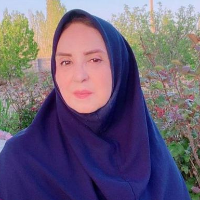Examining today's unused words in Rudaki's poems
Language is a system whose main task is to create communication between people and it is the most important means of conveying concepts. People of every society have their own linguistic knowledge, which includes structural and grammatical rules. Examining the remaining works of the predecessors of each language shows how flexible that language has been and what changes it has undergone in the course of time and in the context of history (Broumand, 1364: 45). Some professors of linguistics in defining the forgotten or unused words of the Persian language have said: "A word is removed from the language and goes out of use in society and loses its communicative role. These forgotten words, because theyexisted in the past works of the Persian language and are not active today, for this reason, they are placed in a special category that can be called forgotten or dead words (Broumand: 94).
This research analyzes dead words in Rudaki's poetry by using library sources and descriptive-analytical method. Also, by giving an example from Rudaki's poetry and referring to authentic cultures, we examine the frequency, meanings and different uses of such words in his poetry.
Discuss:
The importance of knowing the abandoned words in Rudaki poetry and in general in the Samanid era is great because after that period with the changes that occurred in their governments and geographical and political territory, the Persian language - which was at its peak in the Samanid era - changed: On one hand, the richness of its lexical treasure was increased by introducing words from the Tazi language, and on the other hand, it suffered a great loss by leaving aside some Persian words. Because "after the Samanid era, as a result of the spread of the Dari dialect from the east of Iran to other regions, some Persian words that were not common in other regions gradually fell out of vogue and were forgotten, after the Mongol invasion and the destruction of Mavaronahr and Khorasan and the disconnection of the eastern region from active literary centers in other regions, these losses were doubled" (Ahmedenjad, 1996: 23).
This is a strong reason to recognize abandoned words.
Rudaki's mastery of the Persian language - which was also his mother tongue - had provided him with a wealth of words and expressions and made his mind and thinking capable of creating and arranging words and expressions. Rudaki's language was beautiful and far from ambiguity. If today some of the words of Rudaki's poems that have reached us seem difficult and abandoned, it is because these difficult and abandoned words have wide meanings. And the poet, under the influence of his mother tongue and the environment in which his poetic taste has grown, has benefited a lot from these dead words in order to create poetic images. However, the outstanding feature of the remaining nine hundred verses of Rudaki's poems, which are considered to be a perfect example of the 4th century Khorasani style, is its simplicity and fluency, which has considered this feature as an artistic privilege for itself.
- حق عضویت دریافتی صرف حمایت از نشریات عضو و نگهداری، تکمیل و توسعه مگیران میشود.
- پرداخت حق اشتراک و دانلود مقالات اجازه بازنشر آن در سایر رسانههای چاپی و دیجیتال را به کاربر نمیدهد.



